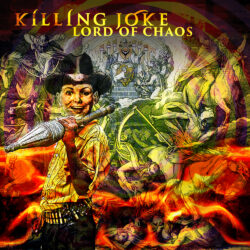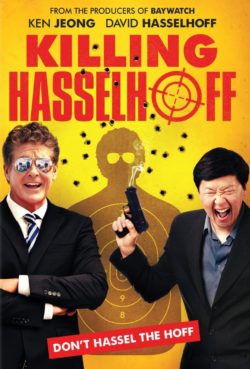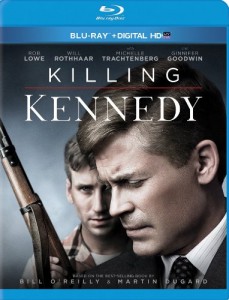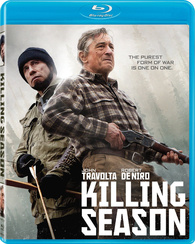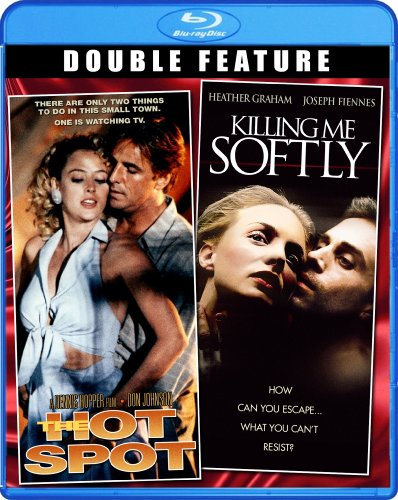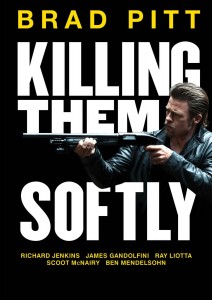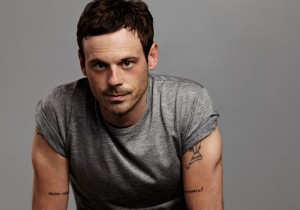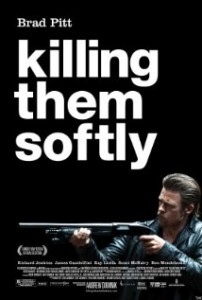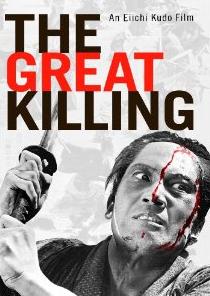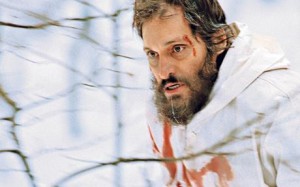Directed By: Joshua Oppenheimer
Rated: R
Running Time: 1 hour 55 minutes
Cinephil
Our Score: 4.5 out of 5 stars
There have been books, movies, TV shows and news pieces about some of the darkest parts of life. Serial killers, mass murderers and rapists have all been documented in some medium when they’re alive and even in post-mortem. We loathe these people, but there’s a unique entertainment about them. Subconsciously, it delves into a dark primal part of our brain while consciously reassuring us that we would never do it and why we should never do it. “The Act of Killing” is a delicious, bitter treat. It’s a morbidly engrossing documentary that gives the viewer a rare insight into evil.
The movie tells us that, in the mid-60’s, there was a cleansing in Indonesia. After the army overthrew the government, it decided to purge, what it believed to be, communists. Death squads were formed and people were tortured and interrogated across the country. What followed was a personal form of execution through strangulation and throat slashing. As for the number of people killed…uncertain. The movie had it’s own figures, but my own research after the viewing have revealed an unbelievable and conservative number below 100,000 while some bleak numbers have stated the amount of dead could be well into the millions. This movie follows Anwar Congo a wanna-be gangster who went from scalping tickets outside movie theaters to murdering over 1,000 people.
With such a horrific event, there are plenty of angles director Joshua Oppenheimer could have taken. Instead he has approached Anwar with a simple proposition. Fictionalize the murders you committed. Re-imagine those terrifying events for our cameras. The movie follows this proposition as well as the making of the re-enactments. This method is actually quite brilliant. Instead of investigating through a series of questions and deciphering the truths and lies, Oppenheimer has played to one of Anwar’s loves: movies. By having Anwar be the star of his own movie about his life, he gets a more real approach and truly sees things through the monster’s eyes. It also allows Anwar to relive and reveal some buried truths through his visualizations.
Along the way we meet some of Anwar’s old buddies, who get together and act like a couple of old fraternity brothers, joking and laughing. But instead of reminiscing about parties and girls, it’s torture methods and cold-blooded murder. We see a gambit of different personalities. From men who feel a form of remorse for their actions to others who are obviously selfish and continually ignore what they’ve done and constantly justify their actions. Anwar is the perfect centerpiece for this movie because at times he represents both of those extremes. Through an aged grin he shows the director around an area where he squeezed the life out of hundreds. Then at times he’s quiet and unspoken with a regret lingering in his eyes. At one point you’ll even get a dirty feeling as you feel slightly sympathetic towards him in one instance towards the end. You might even find yourself wanting to smile or chuckle at some scenes because of how absurd they feel.
This is a soul crushing film. I found myself disheartened and unsure if I enjoyed it because it was such a bleak and unsettling experience. But the more I reflect on it, the more I see a silver lining. You’ll notice if you sit through the credits, there’s a lot of “Anonymous”. That’s because many of the people who helped work on this film live in Indonesia. They live in fear of repercussions from the paramilitary that still festers in the streets and in the government. But there’s a certain bravery behind wanting to speak out. Not because you feel it’s wrong, but because you’re willing to admit the mistakes your own government has made in the past. It’s also a small reassurance that some of the men we meet do feel remorse and realize what they’ve done is wrong. “The Act of Killing” is certain to invoke an array of emotions, stun many people into dead silence and raise plenty of ethical and moral questions. Everyone will take away something different, so I’ll go ahead and tell you the line that still sticks with me days later: “War crimes are defined by the winners.”
Related Content


